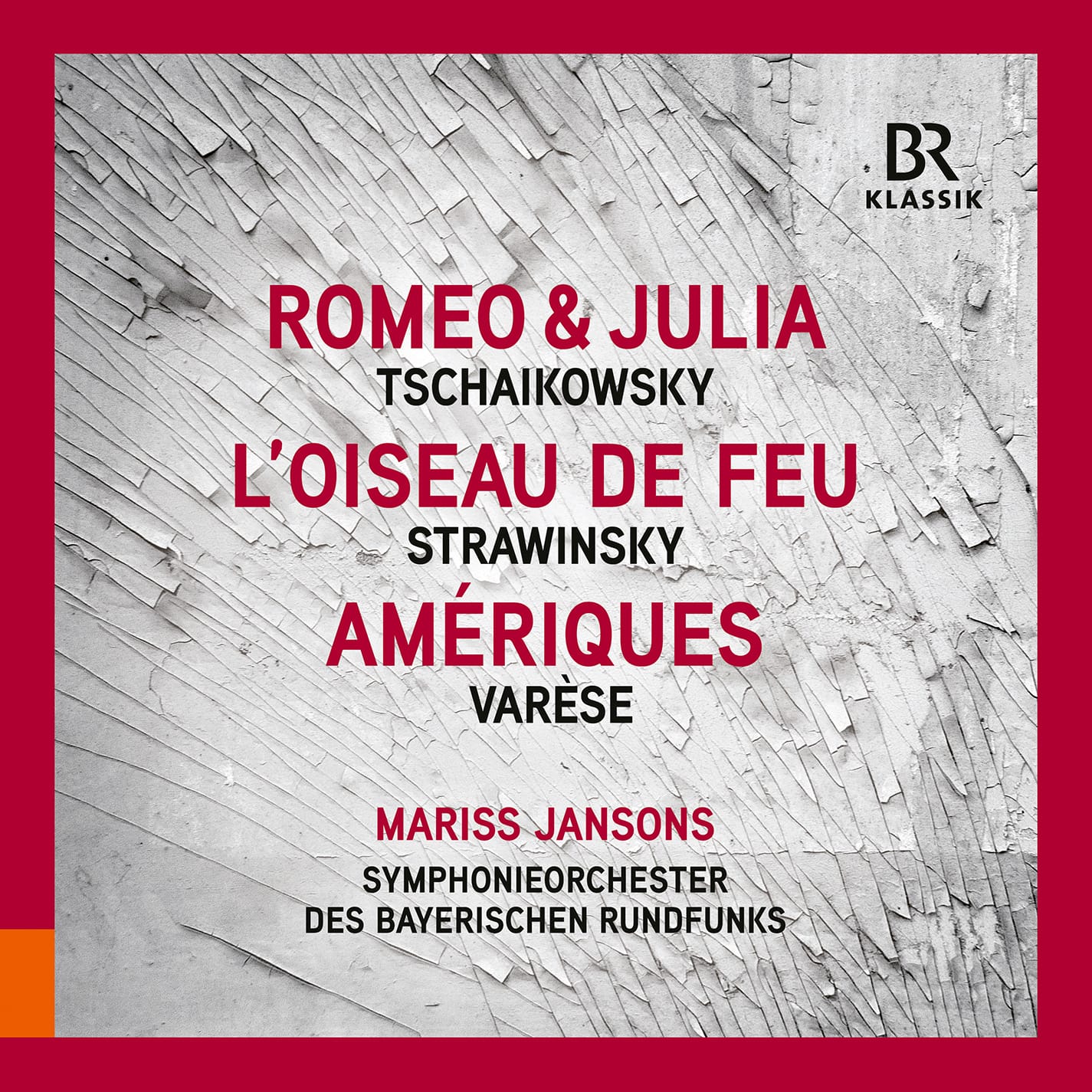
Pretty much every recording by Mariss Jansons is impactful: here on Classical Explorer, we have covered him in Shostakovich Fifth Symphony, Tchaikovsky’s opera The Queen of Spades, Bruckner’s Third Symphony and Sixth Symphony.
This multi-composer programme is a terrific disc live performances from Munich: the Philharmonie im Gasteig, 13.–16.10.2015 (Tchaikovsky, Varèse) and the Herkulessaal der Residenz, 18.–21.03.2013 (Stravinsky).
The Tchakovsky Romeo and Juliet is one of the most involving. Strings in particular are mesmeric, and sometimes one could be persuaded they re Russian such is their intensity. Jansons was Chief Conductor of the Symphonieorchester des Bayerischen Rundfunks and the Bavarian Radio Chorus from 2003 to 2019, so they knew each other well, to put it mildly. His caressing of the big tune is beautiful, but he just keeps it within bounds so the tension remains. Those off-beats really cut through against the big trumpet climax, too:
Here’s his earlier recording with the Oslo Philharmonic:
Stravinsky’s Firebird was the first of the great trilogy of ballets that led to The Rite of Spring via Petrushka. The 1919 Suite remains justly popular, beginning with a beautifully atmospheric Introduction that leads to the Firebird’s flitting dance:
Arguably there is a touch too much love to the “Ronde des princesses,” but there is plenty of punch to the “Infernal dance of King Katschei” (strangely, the punchiest version of this I ever heard was by a conductor not really that associated with Stravinsky: Günter Wand, at the Proms many years ago – 1987, to be precise, coupled with Schubert’s “Great” Symphony). Anyway, here’s Jansons:
The whispered Berceuse melts into the grand Finale, a burnished horn solo, flawless, beginning the inevitable build to a majestic conclusion. Some properly ripping horn whoops, too:
Edgard Varèse’s music can be a hard nut to crack. His Amériques (heard in its 1922 version) was inspired by New York:
… the lonely foghorns, the shrill. peremptory whistle, the whole wonderful river symphony.
Varèse’s sound palette included such instruments as the heckelphone and alto flute, plus a percussion section played by eleven performers. In some ways it makes sense to juxtapose this with Stravinsky as Varèse works with juxtaposed blocks: something Stravinsky would later do (Firebird often looks back to Rimsky, though).There is even a moment when it sounds like it will morph into Firebird -but quickly veers off. And wait ’till you get to the sirens!
This is a magnificent performance of a vast piece. Varèse’s sound world and mode of utterance is pretty unique, so enjoy:
Here, for comparison to the sound links below, is Janson’s version of Amériques with the Royal Concertgebouw Orchestra:
A disc unmissable for the Varèse. Both the Tchaikovsky and the Stravinsky have much to commend them although neither would be top of my list …
Available at Amazon here.











